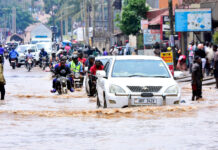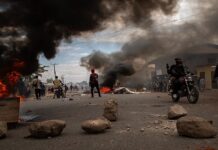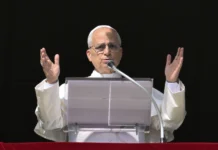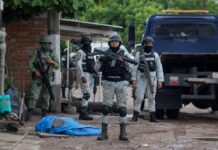South Sudanese forces have arrested the petroleum minister and several senior military officials allied with First Vice President Riek Machar, Machar’s spokesperson said on Wednesday, jeopardising a peace deal that ended the civil war.
The arrests follow intense fighting in recent weeks in the strategic northern town of Nasir between national forces and the White Army militia, a loosely-organized group mostly comprising armed Nuer, Machar’s ethnic group.
The White Army fought alongside Machar’s forces in the 2013-2018 civil war that pitted them against predominantly ethnic Dinka troops loyal to President Salva Kiir.
Petroleum Minister Puot Kang Chol, who hails from Nasir, and the deputy head of the army Gabriel Doup Lam were arrested, while all other senior military officials allied with Machar were placed under house arrest, said Machar’s spokesperson, Puok Both Baluang.
“As of now, there’s not any reason provided to us that led to the arrest or the detention of (these) officials,” Baluang told Reuters.
South Sudanese troops were also deployed around Machar’s residence, although he had been able to travel to his office on Wednesday morning, Baluang said.
The government’s information minister, Michael Makuei, did not immediately respond to requests for comment. He said in a statement he would hold a news conference later on Wednesday.
South Sudan’s civil war, which erupted just two years after the country gained independence from Sudan, killed an estimated 400,000 people, drove 2.5 million from their homes and left almost half the nation’s 11 million citizens struggling to find enough food.
A peace deal struck in 2018 has mostly avoided outright fighting between Kiir and Machar’s forces, though localized violence routinely flares up.
Last week, the African Union and United Nations peacekeeping mission in South Sudan called for de-escalation in Nasir’s Upper Nile State and warned about the potential for “widespread violence”.
Ter Manyang, head of the Juba-based Center for Peace and Advocacy, linked the arrests to the fighting in Nasir and said he feared for the future.
“The country is likely to slide to war unless the situation is managed by the top leadership of the country,” he said.



















